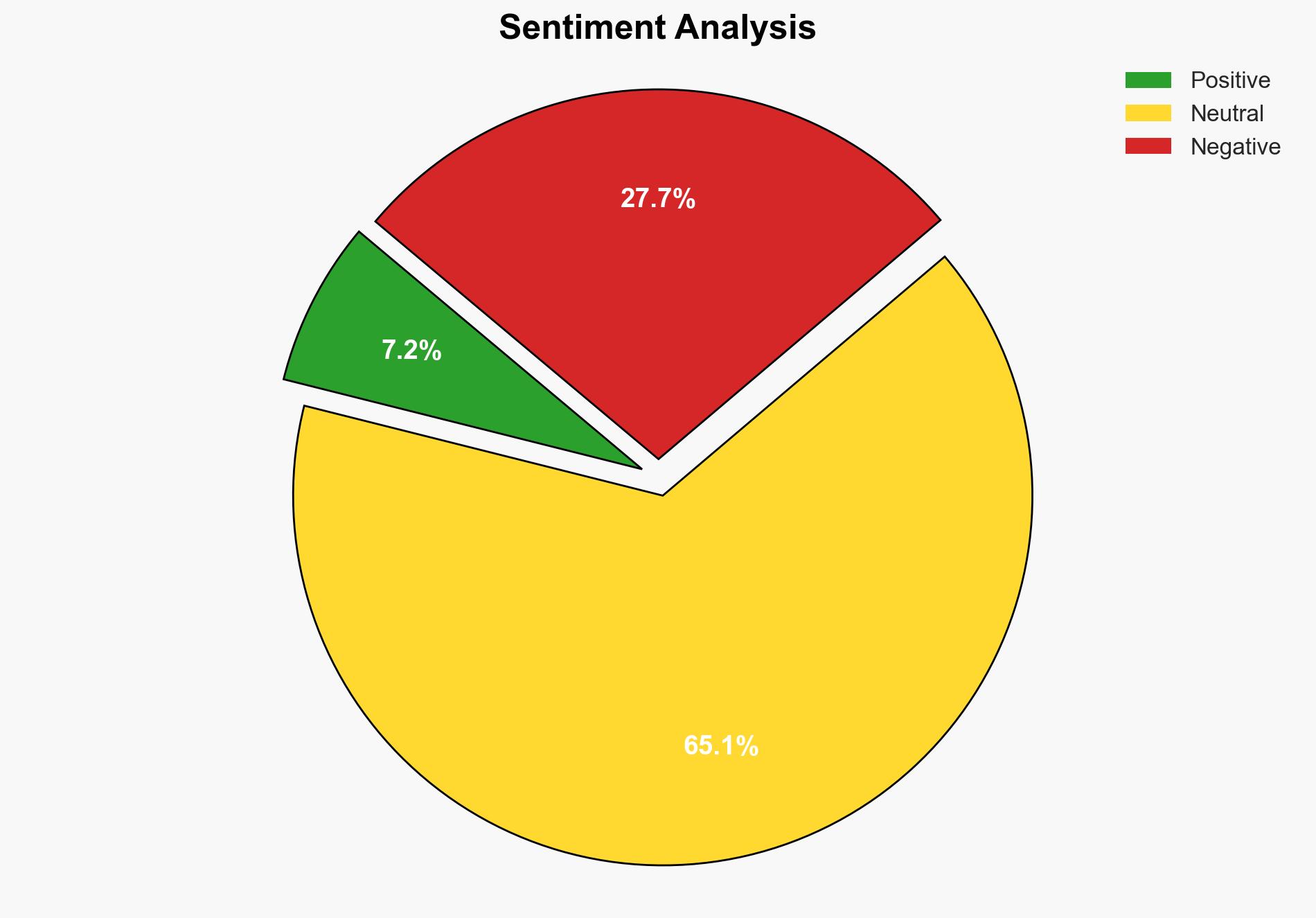Israels disproportionate strikes on Lebanon raise fears of wider war – Naturalnews.com
Published on: 2025-03-24
Intelligence Report: Israels disproportionate strikes on Lebanon raise fears of wider war – Naturalnews.com
1. BLUF (Bottom Line Up Front)
Recent Israeli airstrikes on southern Lebanon have escalated tensions, risking a broader conflict in the region. The strikes, justified by Israel as a response to primitive rocket attacks, have resulted in civilian casualties, including children. The situation is exacerbated by accusations from Lebanese officials that Israel is fabricating pretexts for military escalation. The ongoing conflict threatens regional stability and requires immediate diplomatic intervention to prevent further violence.
2. Detailed Analysis
The following structured analytic techniques have been applied for this analysis:
General Analysis
The Israeli airstrikes began over the weekend, targeting towns such as Aita al-Shaab and Tyre, resulting in significant civilian infrastructure damage. Despite Hezbollah’s public denial of involvement in the rocket fire, Israel proceeded with a second wave of attacks. This pattern mirrors previous Israeli strategies in Gaza, where minor security incidents have led to widespread military responses. The fragile ceasefire brokered in November is at risk, with both sides accusing each other of violations. The Lebanese government, including Nawaf Salam and Joseph Aoun, has condemned the strikes, warning of potential escalation into a full-scale war.
3. Implications and Strategic Risks
The current escalation poses several strategic risks:
- National Security: The conflict threatens to destabilize Lebanon’s internal security and could lead to increased militant activity.
- Regional Stability: A wider war could involve neighboring countries, further destabilizing the Middle East.
- Economic Interests: Prolonged conflict may disrupt trade routes and economic activities in the region, impacting global markets.
4. Recommendations and Outlook
Recommendations:
- Engage in diplomatic efforts to de-escalate tensions and reinforce the ceasefire agreement.
- Encourage international mediation to address underlying issues and prevent further military actions.
- Implement monitoring mechanisms to ensure compliance with ceasefire terms by both parties.
Outlook:
Best-case scenario: Diplomatic interventions succeed in reinstating the ceasefire, leading to a reduction in hostilities and stabilization of the region.
Worst-case scenario: Continued military escalation results in a full-scale war, drawing in regional actors and causing significant humanitarian and economic crises.
Most likely outcome: Intermittent skirmishes continue, with periodic international pressure leading to temporary de-escalations but no long-term resolution.
5. Key Individuals and Entities
The report mentions several significant individuals and entities involved in the current situation:
- Hassan al Zein – Civilian casualty in the recent strikes.
- Nawaf Salam – Lebanese official warning of potential war escalation.
- Joseph Aoun – Condemned Israel’s actions as violations of the ceasefire.
- Andrea Tenenti – UNIFIL spokesperson advocating for negotiation and restraint.
- Benjamin Netanyahu – Holds Lebanon responsible for border violence.
- Ophir Falk – Advises on Israel’s security policies and justifications.
- Sultan Barakat – Analyst commenting on the implications of the conflict.





